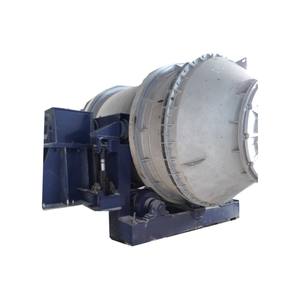**Can Physicians Be Held Liable for Patients Operating Heavy Machinery on Opioids?**
(Can Physicians Be Held Liable for Patients Operating Heavy Machinery on Opioids?)
The intersection of medicine and law often presents complex ethical and legal dilemmas, particularly when it comes to the prescription of opioids and their potential impact on patient safety. One such issue is whether physicians can be held liable if a patient operating heavy machinery is impaired due to opioid use. This question is not only relevant to the medical community but also to industries reliant on heavy machinery, such as construction, manufacturing, and transportation. Understanding the legal and professional responsibilities of physicians in this context requires an examination of medical ethics, duty of care, and the potential consequences of opioid use.
### The Role of Physicians in Prescribing Opioids
Physicians are entrusted with the responsibility of prescribing medications to manage pain and improve quality of life. Opioids, while effective for pain relief, carry significant risks, including sedation, impaired cognitive function, and reduced motor skills. These side effects can be particularly dangerous for individuals operating heavy machinery, as even minor lapses in attention or coordination can lead to catastrophic accidents. As such, physicians must carefully weigh the benefits and risks of opioid therapy for each patient, considering their occupation, lifestyle, and medical history.
When prescribing opioids, physicians are expected to adhere to established guidelines and standards of care. This includes conducting a thorough assessment of the patient’s condition, discussing the potential risks and side effects of the medication, and providing clear instructions on its use. Failure to do so may constitute a breach of duty, potentially exposing the physician to legal liability if the patient’s impairment leads to harm.
### Duty of Care and Legal Liability
The concept of duty of care is central to medical malpractice claims. Physicians owe a duty of care to their patients, which encompasses the obligation to act in a manner consistent with the standards of the medical profession. If a physician prescribes opioids without adequately considering the patient’s occupation or fails to warn them about the dangers of operating heavy machinery while under the influence, they may be found negligent.
In legal terms, negligence requires proving four elements: duty, breach, causation, and damages. If a patient operating heavy machinery is injured or causes harm to others due to opioid-induced impairment, the injured party may argue that the prescribing physician breached their duty of care. For example, if a physician knew or should have known that the patient’s job involved operating heavy machinery but failed to address this risk, they could be held liable for any resulting damages.
### Challenges in Establishing Liability
While the legal framework for holding physicians accountable exists, establishing liability in such cases is not straightforward. One challenge is proving causation—demonstrating that the physician’s actions or omissions directly led to the patient’s impairment and subsequent accident. Patients may also bear some responsibility for their actions, particularly if they disregard warnings or misuse the prescribed medication.
Additionally, the subjective nature of pain management complicates matters. Physicians must balance the need to alleviate suffering with the potential risks of opioid therapy. In some cases, patients may downplay their symptoms or pressure physicians for stronger pain relief, making it difficult to determine whether the prescription was appropriate.
### Mitigating Risks and Protecting Patients
To minimize the risk of liability and ensure patient safety, physicians should adopt a proactive approach when prescribing opioids. This includes conducting a comprehensive evaluation of the patient’s medical history, occupation, and lifestyle. Clear communication is essential; patients must be informed about the risks of opioid use, particularly in relation to activities requiring alertness and coordination. Written instructions and warnings can serve as evidence that the physician fulfilled their duty to educate the patient.
Collaboration with other healthcare providers, such as pharmacists and occupational health specialists, can also enhance patient care. For patients in high-risk occupations, alternative pain management strategies, such as physical therapy or non-opioid medications, should be considered whenever possible.
### Conclusion
(Can Physicians Be Held Liable for Patients Operating Heavy Machinery on Opioids?)
The question of whether physicians can be held liable for patients operating heavy machinery on opioids underscores the importance of responsible prescribing practices and clear communication. While the legal landscape is complex, physicians have a duty to prioritize patient safety and adhere to professional standards. By taking a thorough and cautious approach to opioid prescribing, healthcare providers can mitigate risks, protect patients, and reduce the likelihood of legal liability. As the opioid crisis continues to evolve, ongoing education and adherence to best practices will remain critical for both the medical and legal communities.


